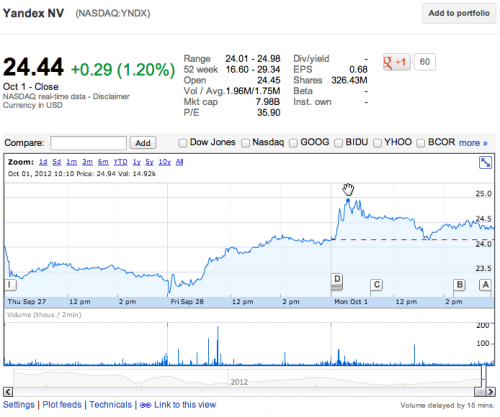Yesterday I came up with the idea to write some appeal to all our readers on a seemingly simple question — "The love and dislike of authors for this or that brand."
We don't have any brand preferences (except for our "Lifehacker" brand). It is worth saying that some Life Hacker authors are fans of Google, and some are from Apple. But this is not love. People who say they love Apple or Yandex go to Wikipedia to read an article about necrophilia. You can't love a brand, because loving an inanimate phenomenon means being just an oddball, and the feeling is not mutual — the brand doesn't love you. He loves only one thing — to make money from you. This is its only purpose in the modern paradigm of the world — industrial and post-industrial society. It is worth understanding that the shareholders of the brand do not care whether you love it or not, whether its employees love you or not, try for you or not — if the dynamics of quotations on NASDAQ is positive, then the brand is doing everything right.
Also, leave your hallucinations that Steve Jobs loved you. Or Mark Zuckerberg loves developers going on the f8 stage. Each such appearance on the stage is made only and only for shareholders. And the essence of it is: "Hey, I'm CEO, and I'm alive and fresh! Look, our shares are growing again after my premiere!" This happened to Yandex yesterday, for example. Arkady Volozh introduced the browser — Yandex shares went up. And love has nothing to do with it, it's just math.


And as for Jobs, he was on stage only out of self-love and only out of love for the nature of stocks, which grew as soon as he went on stage.
Try to perceive all the new services that you read about here from the point of view of spending your own attention. Is Chrome the fastest browser? Yes, but that's only because it's only with a seamless experience of content consumption that you forget how much attention and data you give to Google. A new and very convenient service for working with all "cloud disks" and even for free for you? This is just so that you don't strain for money and bring friends — as soon as your total attention becomes enough, you will be monetized. This is the only goal, not saving the world. Because your attention demands speed and simplicity of interfaces and new innovative interface solutions are born. An almost seamless transition through the interface and server speeds close to real-time cost a lot of money. And only those guys who make money have money. It's so easy! How can we constantly forget about this and argue about brands like we are evangelists on Microsoft's payroll?
Google, Apple, Yandex, Facebook*, Twitter — you can love them all if you want (but you shouldn't), but you need to remember that you give them the most valuable thing — your attention, which they turn into money for their shareholders and investors. They are just "ATTENTION → MONEY" converters.A product company makes a browser (it's not specifically about Yandex.Browser, it's about this niche of products in general) not to give you the most convenient solution or to save you from someone in the name of love for you. No! Google started its Chrome only because the search giant was tired of bureaucratic butting with the leaders of the time for its default. They created their browser to be the sole stewards of their "default" on the mass market. Now they don't have to negotiate with anyone for your attention. It's the same with the mobile part of Chrome. Opera does not make its browser because they want you to quickly load the Internet from a poor smartphone, their only and MAIN goal is to sell the search bar to those who pay. In General specifically for you they do not care, they care about Google is their real clients, not you. But you and I are so arranged that we can choose, and therefore they are forced to make the best product in the niche in order to bring us to their true customers.
Look at the degradation of IE in recent years and you will understand how an ordinary company REALLY thinks about you.
Yes, there are such people. The brand is sincerely loved by its employees, who are given a luxurious office, cookies, interesting work and salary. The brand is also loved by advertising agencies that are busy pumping your attention from places previously inaccessible to the brand. For example, advertising agencies can transfer your attention from radio and TV to the Internet — brands pay them generously for this, and they love them. Sincerely, sincerely. Believe me, I checked it myself — a very pure immaculate feeling.

And evangelicals on the payroll also love the brand. Funny and cool guys from the party, who are just a wrapper for the cynical business that any brand is.
You don't have to love the brand, you have to love yourself and your time. The love of the above listed people is more than enough for the brand.
Returning to the topic of the article, I would like to remind you once again that we, as the authors of a popular blog, do not like brands only because we try to look at the essence of what is happening. We like how Google hasn't slowed down for so many years, but when we see Google+ stuffed with almost only men and Google employees, we are sad. We love Facebook* and VKontakte, which have changed the paradigm of the web almost completely and generously give us their traffic, but when we think about how the modern lives of young people there are, we are sad. We love Apple for its high-quality hardware and pirate courage, but the new cards, the departed authorization from the iPad and adapters worth a cheap Chinese smartphone upset us. And finally, we love Yandex for the recklessness of its struggle, for the best geo-products in the region and a certain national flavor, but the third attempt to repackage the same Chrome, the decline in the quality of new services and the lack of pedestrian navigation are very upsetting to us — dedicated users.
We remember and ask you to remember only one thing — companies want us to look at them as a company of cool guys, forgiving them flaws in products. We will try not to do that. Because we give them in exchange for products what they need, and what we have only one thing at every moment — our attention, which is our only life. This is not an equivalent exchange and our love for them is absolutely useless here!
Instagram Facebook and Instagram*The activities of Meta Platforms Inc. and its social networks Facebook and Instagram are prohibited on the territory of the Russian Federation.